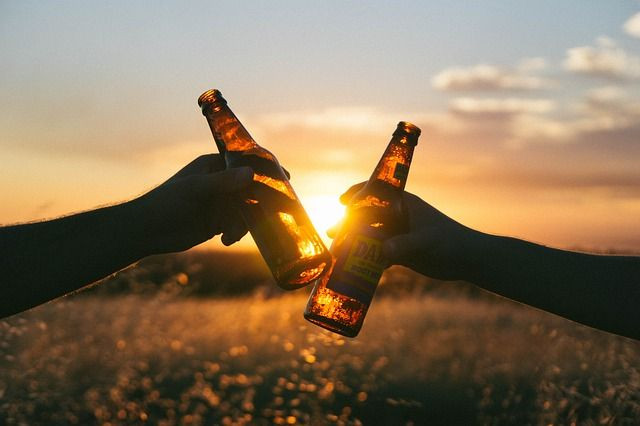Should You Breastfeed And Drink Alcohol? Barley And Hops In Beer Affect Milk Production

We all wonder if it's OK to sip the occasional small glass of wine or a little champagne during special events while pregnant, though doctors have been divided on this issue. The problem with drinking alcohol during pregnancy is that we don't know how much alcohol might be safe, and the same goes for breastfeeding. People say drinking beer supposedly helps with milk production, or lactation, but is there any truth to it?
In SciShow’s video, “Does Beer Actually Help Breastfeeding?” host Hank Green explains beer consumption influences lactation’s two main hormones — prolactin and oxytocin. Prolactin helps trigger cells in the mammary glands to produce milk and fill up little sacs called alveoli. Meanwhile, oxytocin causes the let-down or milk-ejection reflex where the cells surrounding the alveoli contract, which basically pushes out the milk.
Research on beer focuses on the effect alcohol has on these two breastfeeding hormones. Some experiments have found prolactin levels increase due to the components of beer — including barley. A carbohydrate in barley, polysaccharide, has been shown to make lab animals, like rats and ewe (female sheep) synthesize more prolactin. This suggests polysaccharides from the barley and hops in beer, not the alcohol, could have a similar effect in new mothers, as extra prolactin may stimulate more milk production.
A study done on humans found when 13 lactating women drank alcohol, in this case alcohol mixed with orange juice, the levels of prolactin in their breast milk changed. If the woman's blood alcohol concentration (BAC) was rising when the milk was pumped, prolactin levels were higher. if her BAC was falling, prolactin levels were lower. Despite those changing prolactin levels, the women consistently expressed less milk after drinking alcohol.
Previous research has also found drinking alcohol can actually decrease oxytocin levels and inhibit the milk-ejection reflex. In one study, researchers found that the babies of 12 lactating women who breastfed within four hours after drinking alcoholic or nonalcoholic beer drank less milk if their moms had an alcoholic beer, possibly because of an inhibited milk-ejection reflex.
According to La Leche League International, it takes up to 13 hours for a 120 pound woman to eliminate the alcohol from just one drink. The effects of alcohol on the breastfeeding baby are directly linked to the amount the mother consumes. So, as long as a lactating woman has alcohol in her bloodstream, a tiny fraction of it will enter her milk, which could affect how infants breastfeed.
So, when it comes to alcohol and pregnancy, or alcohol and breastfeeding; weigh the pros and cons when it comes to your child's health, and consult a lactation specialist or a doctor for breastfeeding advice.



























